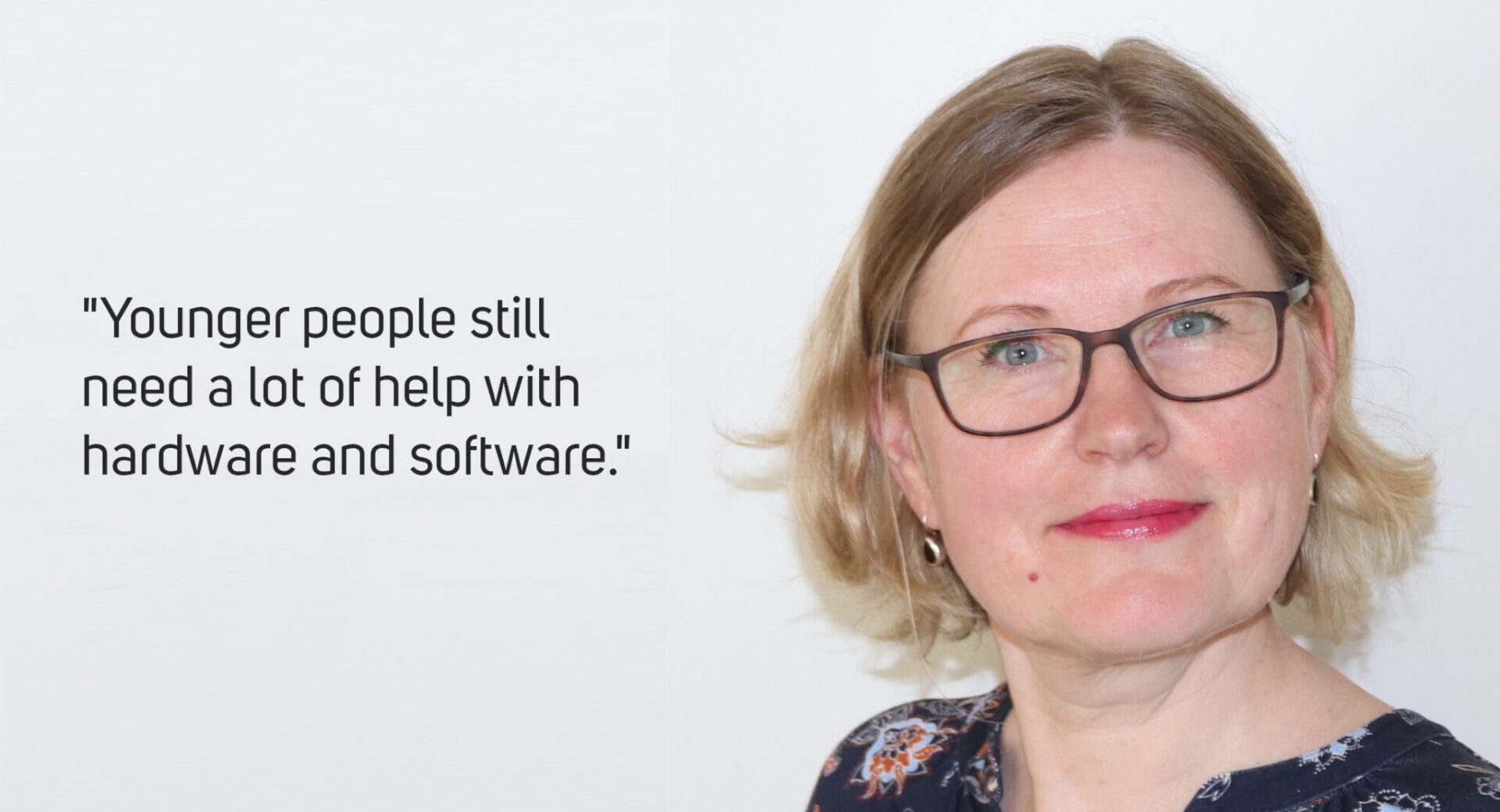
Foto: Kaja Friege
Interview with Dr. Lea Lensment
Dr. Ivana Marenzi, project manager in the area of digital education at L3S, speaks with Dr. Lea Lensment, teacher of chemistry and physics at the Ricarda Huch School in Hanover, on the digitization of schools in the pandemic and the IServ school platform.
Dr. Lensment, how has the acceptance of the online school and also of IServ been, with you, with your colleagues, and with your students?
When I started at my current school ten years ago, they were already working with IServ. All the chemistry and physics classrooms had a relatively stable Internet connection and digital whiteboards. However, the pandemic has fundamentally changed my usage behavior. I no longer use IServ only for e-mails or for storing lesson results and worksheets, but all teaching and organization now takes place via IServ.
How do you use IServ?
At the Ricarda Huch School, we use standard modules such as e-mail, files, office and exam schedule. Added to these are the modules Tasks, Video Conferences, Texts (for group work), Surveys, Edupool, News and Calendar for organizing the video conferences.
How can your students work together?
The most commonly used at my school is certainly the IServ video conferencing module BigBlueButton and the Texts module. Both tools are well suited for group work. Communication in the groups takes place via the Messenger and Forums modules, but also via Whatsapp.
Do you use other tools or platforms?
Yes, and regularly I look for new tools with other functionalities or ready-made applications. However, it is often difficult to use them for data protection reasons, so we can only use Padlet or LearningApps to a limited extent, for example. However, H5P units are used via the IServ module Edupool, which offers many new teaching possibilities.
What devices do your students use?
Not everyone has a PC, laptop or tablet available at home. Participating in online lessons with a smartphone is certainly anything but optimal. The often inadequate Internet connection at home is another problem. This makes it very difficult for some students to follow lessons and for teachers to teach.
What about your students’ digital skills?
This can hardly be answered in a general way. Younger students still need a lot of help in dealing with hardware and software. This support can hardly be organized by the school and must be provided by parents. From the eighth grade onward, hardly any assistance is needed. Nevertheless, older students also need to acquire digital skills first.
Has student performance changed in the digital classroom?
A comparison with face-to-face teaching is extremely difficult; how much and to what depth learning took place in online lessons can perhaps only be determined after the pandemic. What is clear is that this depends heavily on the tasks set and on the students themselves. The online lessons themselves are certainly problematic. Unlike in face-to-face classes, where you can see the entire class and react to the situation, students do not have a camera and sometimes a microphone activated. The reasons vary widely. Participation in the classroom varies a lot, as in face-to-face classes, but you can respond less. Special is then certainly also the fair and individual performance evaluation.
What is the infrastructure like at your school?
My school is currently being equipped according to the standard of the media development plan of the city of Hanover. This means that a digital whiteboard and fast Internet will be available in all classrooms. The computer rooms will be equipped with new devices and support is planned from the computer center of the city of Hanover. So far, five schools in Hannover have been equipped to this standard, with six more to follow. Technically, this represents a huge leap forward in development compared to the situation before the pandemic. However, lesson planning and implementation takes place predominantly at home. This means that teachers have to conduct distance learning using private devices and home Internet.
Is it easy to schedule online classes?
It is significantly more time-consuming for me and many other teachers. A separate issue is navigating the jungle of possibilities from a legal perspective: Am I allowed to use the tool at all, what data is stored and where?
What have you learned for the post-pandemic period?
Covid-19 was a catalyst for digitization in school and also for the development of my digital skills. I will certainly continue to use some digital tools, although I will also be happy when regular face-to-face teaching with analog materials and more diverse social forms is possible again. What will certainly remain are easier exchanges with colleagues, for example about the need for hardware or the introduction of tablet classes. Students will increasingly work digitally in the professional world and must now also be prepared for this in school. In a way, the Covid 19 pandemic was an initial spark with a long-term effect for all teachers.
Dr. Lea Lensment, thank you very much for the interview!


